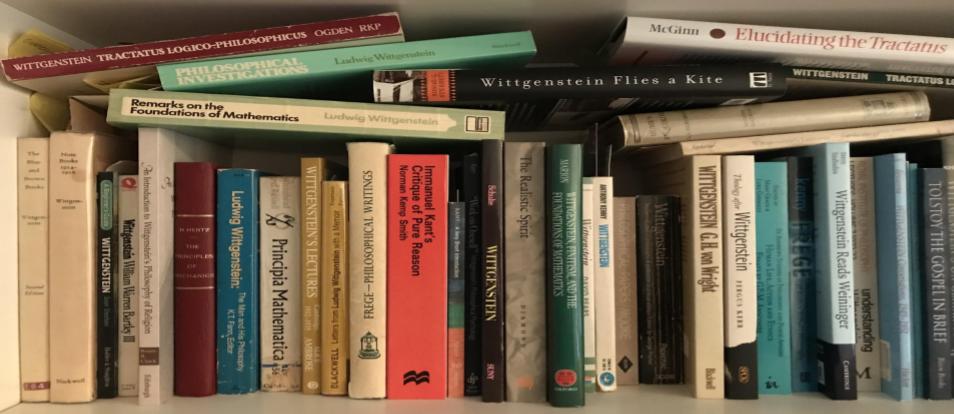There is a danger when recommending books on a subject: too difficult and the reader will not get past the first few pages, too easy and they will start to get bored and wonder why they should bother. This fine line becomes precarious when recommending books about the philosopher Ludwig Wittgenstein.
Wittgenstein attracts a lot of attention: he gave away a fortune that he inherited from his millionaire father; was decorated for valour for his service on the Eastern front and against the British army during the First Wold War; was a hospital porter; a gardener’s assistant in a monastery; designed a house in the modernist style for his sister in Vienna and at one time thought about being a monk. Against the background of his life he is considered by many to have been one of the greatest philosophers of the 20th century ( Bertrand Russell being the other ). His life and work has generated over two thousand books, a large number of web sites, and what feels like a library full of academic papers. It is very easy to get lost in the growing material! However, the following books I have found helpful in developing my understanding of Wittgenstein’s work.
The first book that I would recommend is The Principles of Linguistic Philosophy by Frederich Waismann. The early chapters describe how philosophical problems arise and gives an overview of Wittgenstein’s solutions in non-technical language.
There are many general books on philosophy that have a section on Wittgenstein, but one of the most accessible is the chapter with John Searle in Bryan Magee’s The Great Philosophers ( pg 322 - 347 ) which gives a short and clear overview from the two major periods of his life: the Tractatus Logico-Philosophicus ( known as the Tractatus ) and the later work Philosophical Investigations. Another accessible book with a clearly written section about the Philosophical Investigations is by Stephen Law The Great Philosophers ( pg 156 - 161 ).
A short introduction to Wittgenstein’s life and work is Norman Malcolm’s Ludwig Wittgenstein A Memoir. Malcolm was one Wittgenstein’s students and he gives a fascinating insight into his character. A more extensive book about Wittgenstein is Ray Monk’s The Duty of Genius.
To get a flavour of Wittgenstein’s solutions to philosophical problems, A. C. Graylings’s book Wittgenstein A Very Short Introduction gives enough detail to start understanding Wittgenstein’s approach to philosophical problems.
There are many specialised introductions for the Tractatus and Philosophical Investigations but Ray Monk’s How To Read Wittgenstein, explains passages from his work in a way that is understandable. Another short introduction to Wittgenstein’s approach to solving philosophical problems is Wittgenstein by P. M. S. Hacker ( part of the The Great Philosophers series ) which contains a section on whether a machine, in particular computers, can think ( very topical for todays world with the heated debates about Artificial Intelligence ).
The book that I first read about Wittgenstein, following a recommendation by a philosopher specialising in his work, was Wittgenstein by Anthony Kenny, which I regularly refer to.
A good preparation for reading Wittgenstein’s work directly ( he only published the Tractatus in his own life time but there are several books of his notes ), is Wittgenstein’s Tractatus an Introduction by H. O Mounce. Another book that gives a good overall in prepartion for reading the Philosophical Investigations is Marie McGinn’s Wittgenstein and the Philosophical Investigations. Both books are not easy to read but with perseverance then his work should start to make sense.
Hopefully the above will help you navigate through the forest of material about Wittgenstein - Good Luck!
